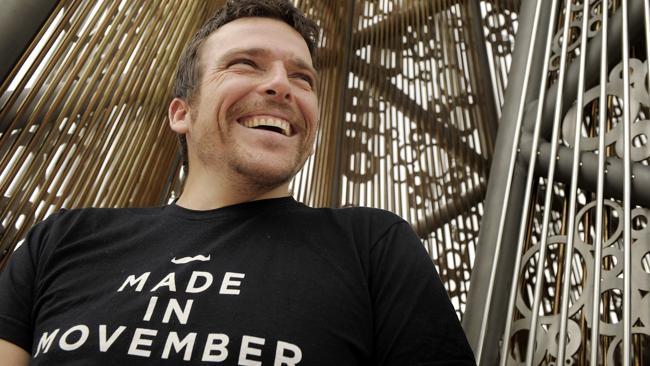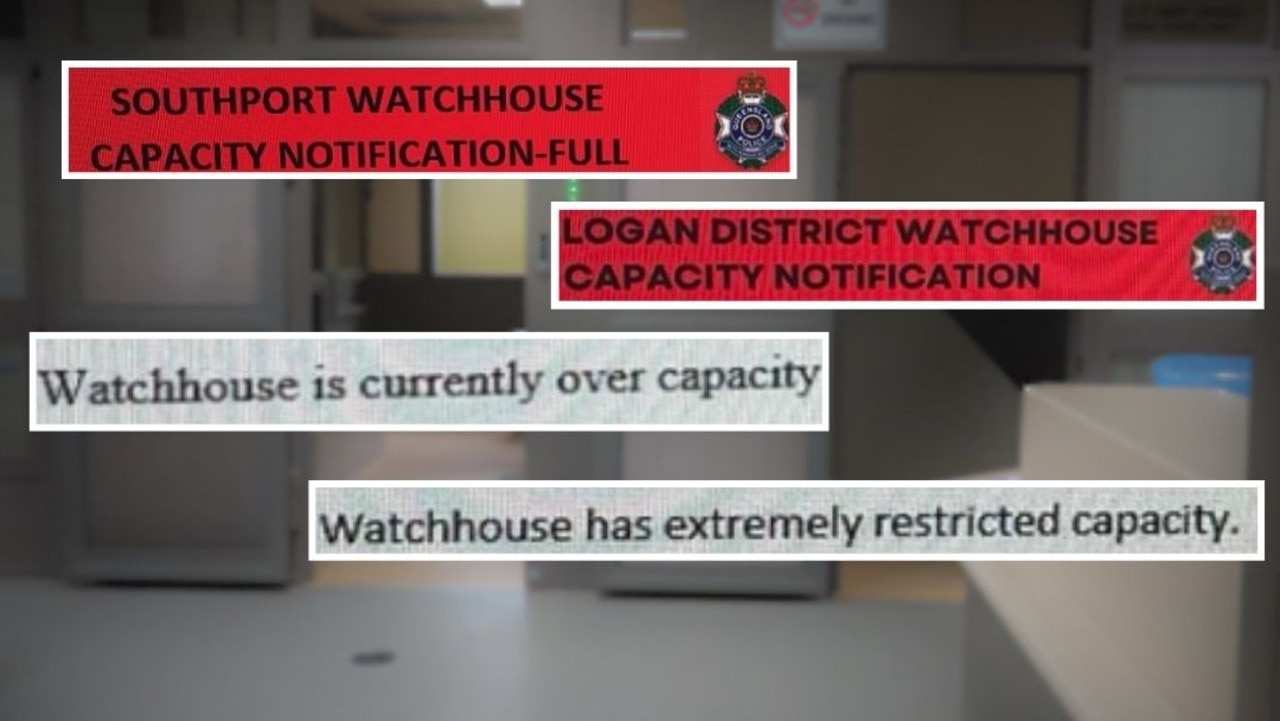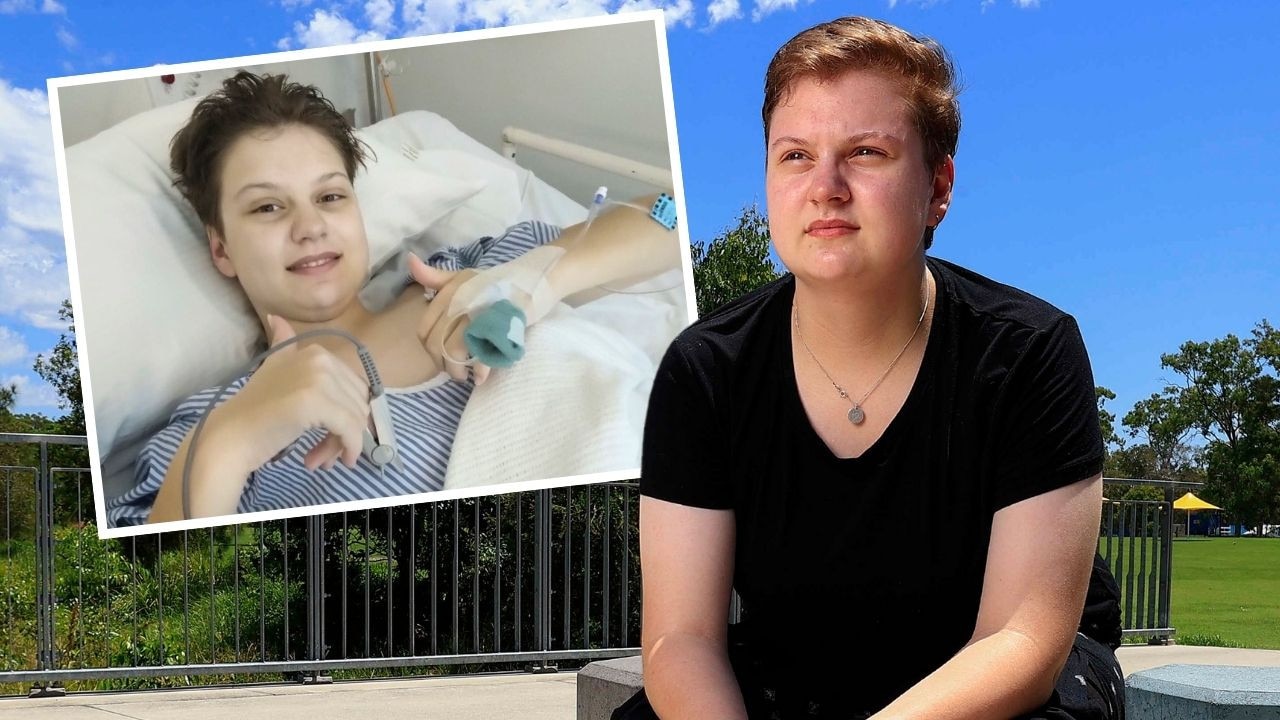Athlete Kurt Fearnley on sport, life, love and what it takes to become a champion
BACK from winning his fifth New York marathon, this champ’s motto is simple: ``You should grow up being told that you can kick the world’s arse, it doesn’t have to kick yours.’’

News
Don't miss out on the headlines from News. Followed categories will be added to My News.
NINE months ago Kurt Fearnley and his wife Sheridan welcomed their first child into the world, a happy, healthy, wide-eyed son named Harry.
Sheridan’s labour had been a long and gruelling marathon but when she finally passed the baby to Kurt he was able to take his tiny son into his brawny arms and study the magnificence of a new human life with all its infinite possibilities and potential. The veteran of four Paralympic Games, who has also sailed the Sydney to Hobart yacht race and crawled through mud and slush for 11 days along the Kokoda Track, carefully chose his first words to this tiny little human starting out on life’s mysterious journey.
``You are loved,’’ Kurt told his son, ``you are strong, you are powerful and you are worthy of all those who will help you along the way. You must never forget that.’’
As Harry looked back, trying to comprehend this wonderful new experience called life, his father continued: ``You always have the ability within to live your life, the ability to push the limits.’’
It was the same message Kurt’s parents Glenn and Jackie had told him, in both word and deed from the moment in 1981 when they brought him home from the Cowra Hospital to their small country home in the NSW bush at Carcoar and set him on the path to success as one of Australia’s greatest athletes. So far he has won three Paralympic gold medals and taken 37 first places and 16 podium finishes from 58 wheelchair marathons.
``We are all lifters and leaners (leaners),’’ he tells me at a Kangaroo Point cafe while on a nationwide tour promoting his stirring autobiography. Home is in Newcastle where he still teaches high school occasionally but he’s not often there given his many competitions, speaking engagements, preparations for the Rio Paralympics or representing half a dozen charities. ``Sometimes we have to lift others and sometimes we have to lean on others.
“I grew up knowing that I could always rely on the people around me – my childhood was spent in an extremely open and settling atmosphere where there was help for me every time I asked for it.
``I wanted to make the point in my book that relying on people around you and helping others changes lives, it saves lives and makes the extraordinary possible.’’
Fearnley is just back from winning his fifth New York marathon and talking about the importance of a childhood in a large and loving family that encouraged him to view himself not as disabled, just short.
Like the dearly departed Stella Young, this 140cm giant of Australian sport has always challenged the stereotypes of disability, railing against what Young called “inspiration porn’’ – the notion that someone in a wheelchair is automatically heroic because of their ability to perform everyday tasks.
Fearnley still shakes his head at those in the city who were amazed he could actually go shopping by himself or drive a car and laughs about the journalist who once asked him if he was bitter about the cards life dealt him. He loves his life, thanks very much. In his words it’s been ``awesome’’.
Yet his father knew in the birthing room that something was wrong.
Baby Kurt was in the breech position trying to come out backside first and he emerged into the world screaming as the doctor broke his right thighbone trying to get his legs around.
The next day when an ambulance took mother and child 300km to Sydney, neonatal experts there told the Fearnleys that their baby had a rare congenital disorder called lumbosacral agenesis. The lower part of Kurt’s spine and sacrum were missing. His legs were useless.
One of the doctors casually told the Fearnleys that with four children already at home, they might be better off putting their newborn into special care.
Instead Kurt was brought back to Carcoar, the small bush town that still looks very much like it did in the 1860s when bushranger Ben Hall robbed the local bank.
He would grow up rough and tumble with his siblings Becki, Jayson, Tanya and Adam, encouraged to play life hard like all the other kids in the community.
He credits a childhood crawling under barbed wire fences, struggling up hills and across paddocks on his elbows, hunting rabbits with ferrets and riding an ornery Shetland pony named Teddy for giving him the mental strength to overcome all the speed bumps he’s encountered as a wheelchair athlete. It was only because of that early resilience being developed, he says, that he was able to quickly recover from a head on collision between his chair and a car in Switzerland and later win the 2004 Athens marathon gold medal with a punctured tyre.
``As a kid I was encouraged do activities that would stretch me without breaking me,’’ he says. ``The only way to build resilience is to set a goal and go after it. My brothers just assumed I could do anything they could do. As kids we were active and strong and knew no fear. Over time those adventures made me understand how much determination and strength I had inside me.’’
Fearnley’s dad worked as a labourer and to make money for the kids to have a beach holiday each year, he helped out at the piggery and abattoir on weekends. His work ethic filtered down.
One uncle, Terry Fearnley, coached Australia in rugby league and another, Greg ``The Butcher’’ Fearnley, was part of the mighty Western Division country rugby league team that beat all the big city sides in the historic 1974 Amco Cup. And yet another uncle, Royce Simmons, won an NRL premiership as hooker with the Penrith Panthers.
Kurt’s Uncle Chum castrated sheep with his teeth.
Fearnley was the first student to attend nearby Blayney High School in a wheelchair and the physical education teacher there, Maureen Dickson, sensed a frustrated athlete looking for a proper vehicle to showcase his abilities,
She contacted Wheelchair Sports NSW and Fearnley had his first experience at wheelchair basketball. He became a wheelchair racer and the Carcoar community raised money to send him to the 1995 US junior national championships in Colorado where there was barely a race in which he didn’t finish last. The first time he competed over 800m he thought it seemed a hell of a long way to push a chair.
But he refused to give in and though the wheels often fell off his ambition, his confidence grew.
Getting his driver’s licence and buying an old Mitsubishi Magna with modified controls, allowed him to move to Sydney and advanced training with Australian teams.
On his first night in the big city his car was broken into and for months he survived on scrounged Weet-Bix and bananas.
In 1999 he was sponsored on another sporting trip to Europe but while at the front of a pack of wheelchair racers on a winding road in Switzerland he lost control and hurtled into an oncoming Mitsubishi Colt.
``I can still see the face of the lady who was driving,’’ he says wryly, ``what a shock for her to be hit by a runaway wheelchair. She had a two-year-old in the back seat and the look on her face when I broke my nose on her windscreen …
``My face cracked it and I rolled off with a busted leg.’’
When his Magna was written off in a crash back in Sydney soon after, a cracked sternum still couldn’t thwart his dream to compete in the 1500m wheelchair demonstration event at the Sydney Olympics even though he says ``a sternum injury is not ideal in a sport in which your chest, shoulders and arms are your engine.’’
He finished fourth and at the subsequent Paralympics a month later won two silver medals.
But in the marathon he pushed himself so hard that he blacked out climbing Sydney’s Anzac Bridge and in his momentary unconsciousness began to roll backwards. He eventually finished 21st after more than two hours of pushing the chair, a task akin to doing push ups for two hours.
``Those 42 kilometres had just busted every part of me,’’ he says, ``but I wanted more of it.’’
While studying at Bathurst’s Charles Sturt University to become a high school teacher, Fearnley began pushing his chair around the 6.2km Mount Panorama motor racing circuit, struggling up the steep mountain turns and then dodging speeding tickets when he hit 77km/h down Conrod Straight, a public road most of the year. At the time he found something even more exhilarating at University, Sheridan Rosconi, who became his wife.
In 2004, after 10 years of near misses, he won his first major race, the Paralympic gold medal in the 5000m in Athens but the crowning achievement was two days later with his body screaming in agony and his heart hitting 202 beats a minute during the marathon. He led the pack, when 5km from the finish line at the Panathenaic Stadium, home of the first Olympics in 1896, he heard a loud pop underneath him. His left tyre had punctured.
His tyre pressure dropped from 200 psi to 30 psi, but on this hot, stressful day and with minimal sleep, his blood pressure went through the roof and he felt a surge of adrenalin.
The carbon wheel rasped against the bitumen and as Fearnley and his wonky chair wobbled through the streets of Athens toward the finish line he heard a friend shouting what sounded like ``Go, go, go.’’ It was actually “Gold, gold, gold.’’
Fearnley had lurched to victory and there was no turning back.
He became a fixture at all the big marathon races around the world, New York, Boston Chicago and London. In 2006 he set a wheelchair record in New York of 1hr 29min 22sec that still stands and between February and November 2007 competed in 11 major marathons, winning 10.
He and Sheridan lived race to race, with him agreeing to compete in different events for a week’s accommodation and food.
``We struggled financially at the start,’’ he says, ``but there’s definitely something empowering about that.
``My whole career has been about struggle. I have a high lactate tolerance and can push through the pain of sore muscles. I know the pain everyone else is feeling and I can push through it because I’m an expert in handling discomfort
``That comes from growing up rough and tumble. My family wanted to make me a strong person. I could always get my hands dirty and I could be a member of the community like anyone else. The community in the bush is dirt and gravel and grass.
``I don’t believe that your born tough and resilient but you certainly build it as you grow.’’
But there was no greater test of his hunger and resilience than in the wilds of New Guinea in 2009 when for 11 days he crawled along the 96km of the Kokoda Track, a feat so gruelling that his weight dropped from 53kg to 46.
The trek was an important life experience. He wanted to share it with those who had helped him make his way through life’s hazards. He wanted to thank not only the soldiers who had sacrificed their lives there fighting the Japanese in World War II but to acknowledge his own family and friends who helped him make the most of his talents. And to pay tribute to the Paralympians who came before him – people such as Louise Sauvage, Michael Milton and John Maclean, household names for their astonishing achievements rather than their disabilities.
``Kokoda was the hardest, the best, the most incredible, the most brutal, the most emotional thing I’d ever done,’’ he says.
``I wouldn’t be here without people who believed in me and I wouldn’t have been here if I hadn’t listened. I am the sum total of those words of encouragement and the belief that has been shown in me by my family and a schoolteacher who saw some spark.
``I’ve always believed the constant hum in my ears telling me that I am powerful and that the world is my canvas. At some point I understood that disability would never be a weight and would never drag me down.’’
Fearnley says his boy Harry will grow up strong and reinforced and encouraged and he wishes that all kids with a disability could grow up with the support that he had as a child of the Australian bush.
``Everyone with or without a disability,’’ he says, ``should grow up being told that you can kick the world’s arse, it doesn’t have to kick yours.’’
Pushing The Limits by Kurt Fearnley with Warwick Green, Penguin, $39.99


